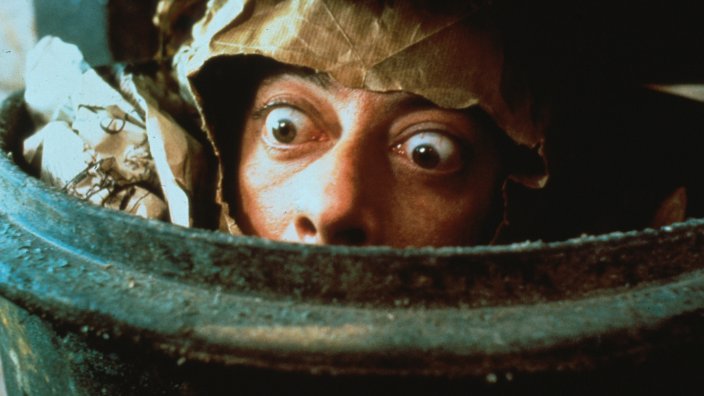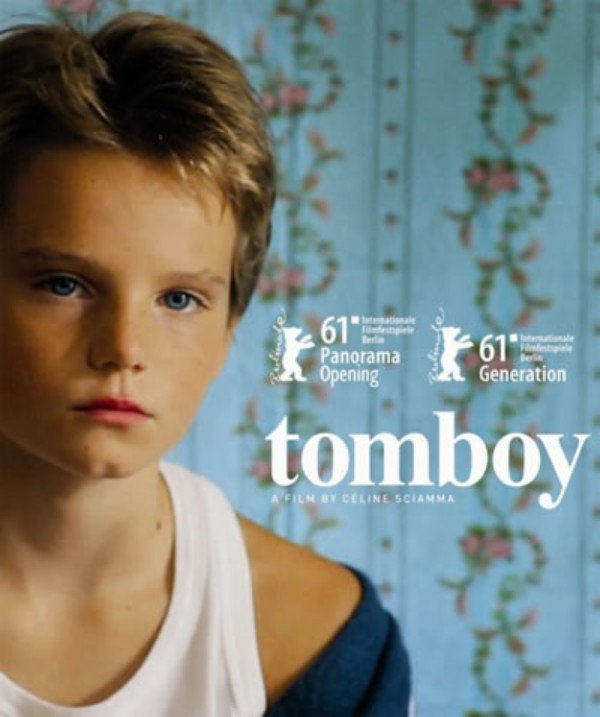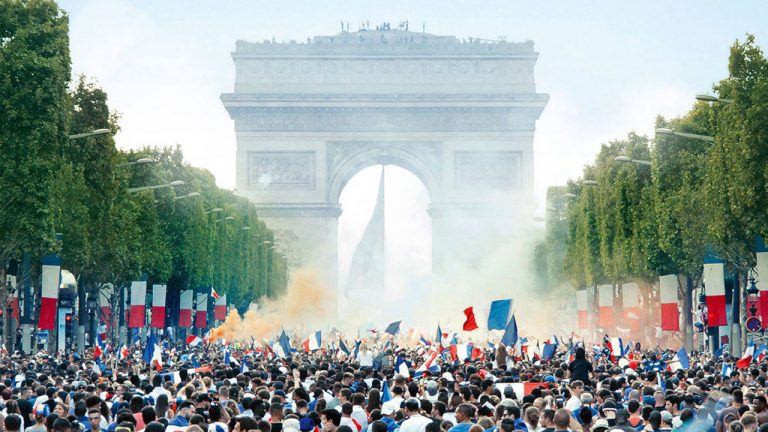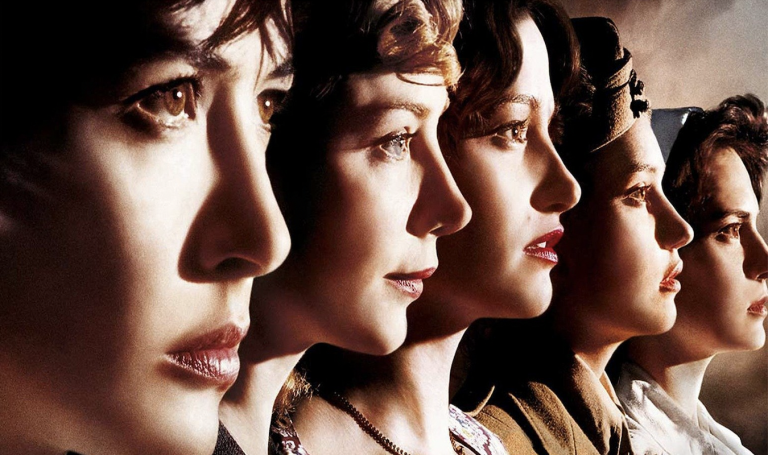An Expensive Moral Compass in Delicatessen (1991)
Film critique by Olivia De Santis
Love, horror, and manic hunger all intersect in Jean-Pierre Jeunet and Marc Caro’s dark, cannibalistic film Delicatessen (1991). Situated in a dishevelled building in post-apocalyptic France, a group of tenants rely on the murderous butcher Clapet (Jean-Claude Dreyfus), who hires new workers to murder and sell as human meat. When Louison (Dominique Pinon), an unemployed entertainer, takes up a new apartment to work for Clapet, he disrupts these savage traditions and alters the lives of everyone in strange and surreal ways. While Delicatessen remains both dark and playful, it brings into question the limits of the ethical being and showcases the role that poverty and desperation play in influencing one’s own moral compass.
Colours, rhythms, and onomatopoeic sounds are all employed as powerful mise-en-scène elements in Jeunet and Caro’s labyrinthine film. The film’s initial scenes are soaked in a red maroon palette, reflecting the cannibalistic colours of meat and blood. Varying shades of garnet, russet and sienna permeate through the clothing, corridors, furniture, and bedroom walls of every room. The synchronised rhythms of cello-playing, dusting mats, knitting, bicycle-pumping, painting, and breathing further emphasise how the residents are interconnected to a dangerous extent, and consequently dependent on each other for survival. As a result, the dilapidated building metamorphosises into a living, breathing being, and each resident becomes a cog in a murderous machine.
Additionally, Jeunet and Caro’s subtle introduction of contrasting colours helps the viewer notice transitions that take place throughout the film. Colours also introduce new ideas and themes. Newcomer Louison arrives in a mustard-yellow jumper, which acts as a subtle subversion from the meat-saturated tones found in everything else. The colour yellow also reiterates his role as an entertainer to the audience, bringing joy and happiness to an anger-filled world of reddish tones. Furthermore, Clapet’s daughter Julie (Marie-Laure Dougnac), yearns to be more connected to the outsider and begins wearing blue. Blue is rarely seen in the film, only reflected in the stark turquoise glow of the television, symbolising the outside world far away from Julie’s gruesome reality. Indeed, as Julie starts to question the brutalist reality of her father’s business and begins to form opposite morals, she begins wearing blue as the opposite to her usual red.
The ambiguous conflict in Delicatessen, paired with subdued dialogue, distorted camera angles and eerie landscapes creates a nightmarish and unpredictable experience for the viewer. However, underneath the aesthetics of this murderously playful film lies a deeper moral conflict, affecting each and every character. While the tenants are aware of Clapet’s gruesome actions, and this unspoken knowledge causes widespread pessimism and dread, they still submit to eating their neighbours as a means of survival. This creates a dark balancing act between reproaching Clapet’s actions to retain one’s own moral compass and submitting to them for food. This severe conflict of morals results in complete anarchy between the residents: mischief, stealing, arguments and physical violence flourish as morals and values start to decay, mirroring the decayed building itself.
While situated far from reality, Delicatessen recalls the widespread poverty and famine before the French Revolution of 1789. It challenges the viewer to consider the sacrifices made in desperate times. Do Clapet’s actions reflect his lack of morals and compassion? Or are they simply an unfortunate by-product formed from the depths of poverty? Jeunet and Caro invite the viewer to consider whether a moral compass could even be sustained by those living in widespread starvation in a post-apocalyptic world.
Delicatessen questions the affordability of a moral compass in times of desperation. While the film’s setting evokes images of war, famine and ruin, it may also remind the contemporary viewer of the pressures to constantly make ethical choices, and the inner conflict one feels when they can’t afford to be more ‘ethical’. In modern times, slow fashion and eco-friendly products have been largely praised by society for environmental purposes, but remain far too expensive for the everyday consumer, who continues to buy fast fashion and plastic items because it is simply more affordable. By utilising colour, sound and scenes of conflict and tension, Delicatessen explores the expensive pressure to be ethical in an apocalyptic extreme.
Olivia De Santis is a student of Introductory French at The Australian National University (ANU).





